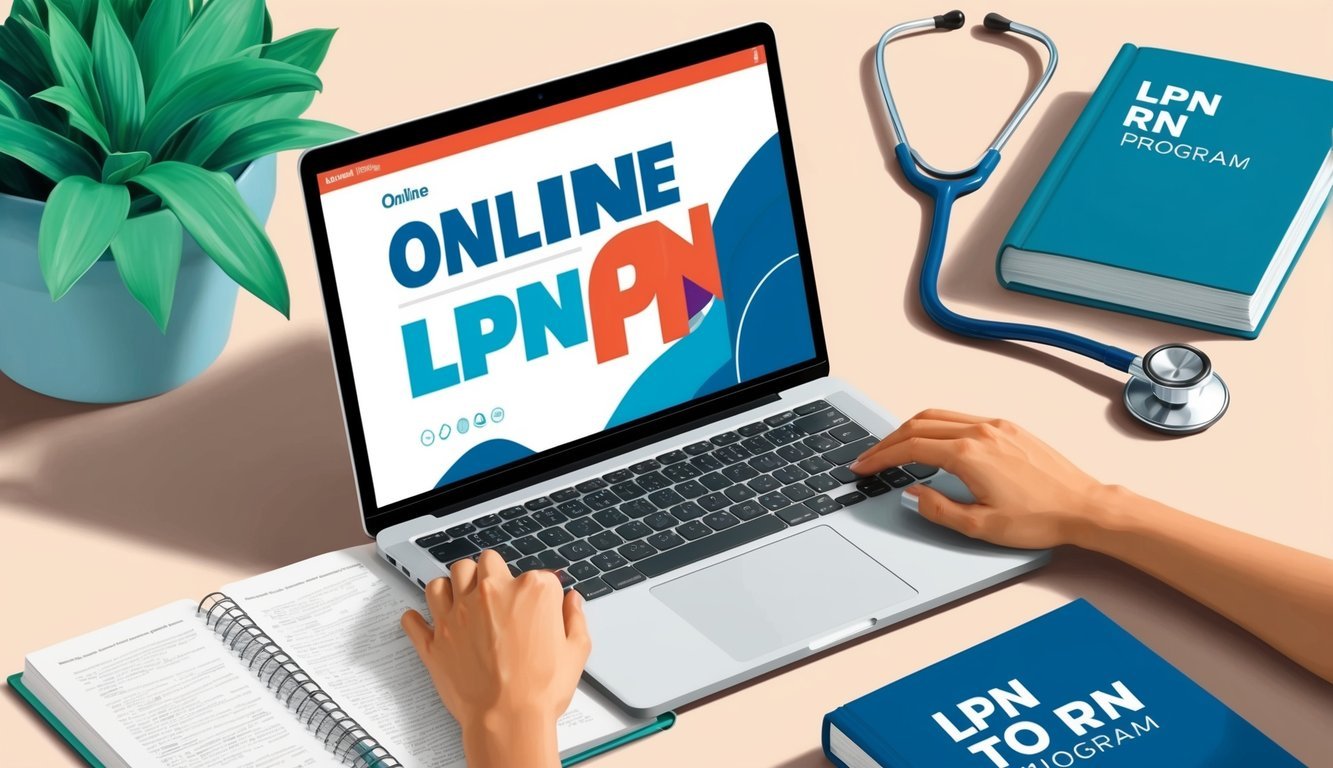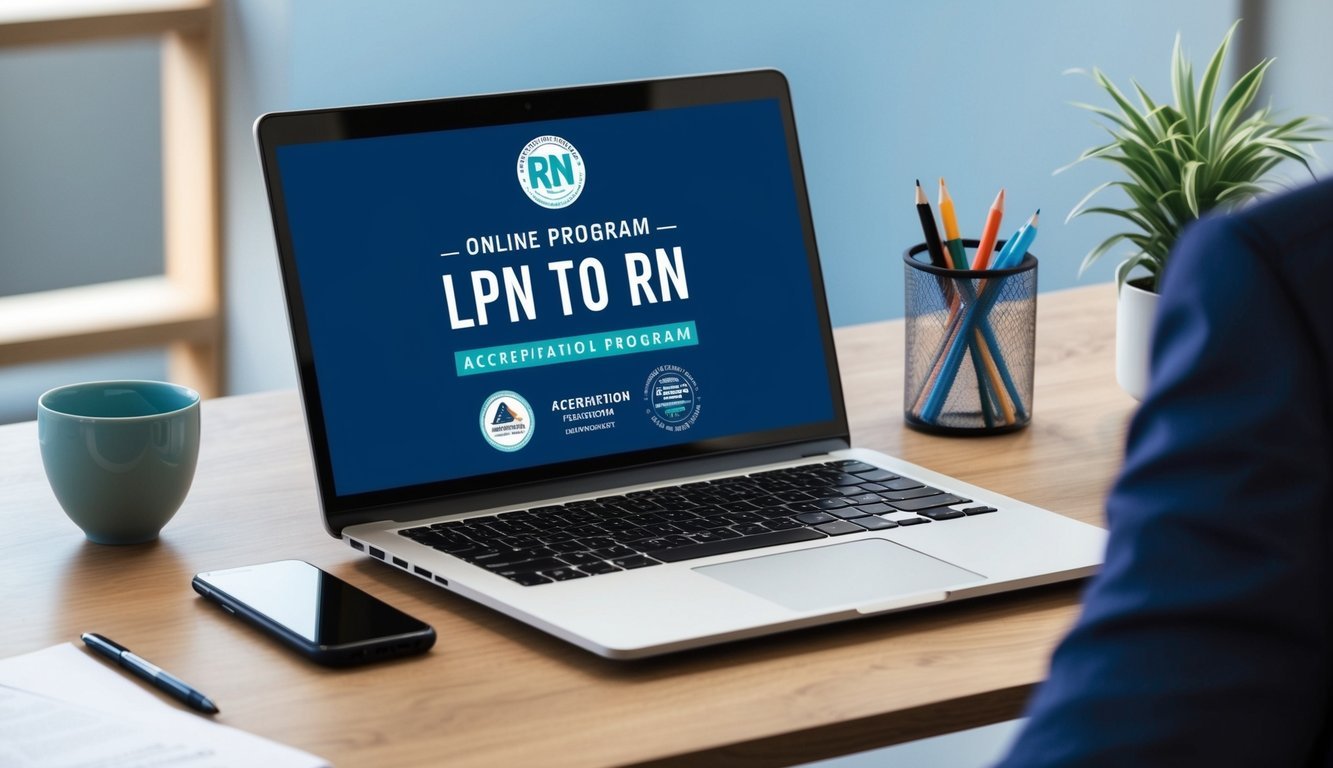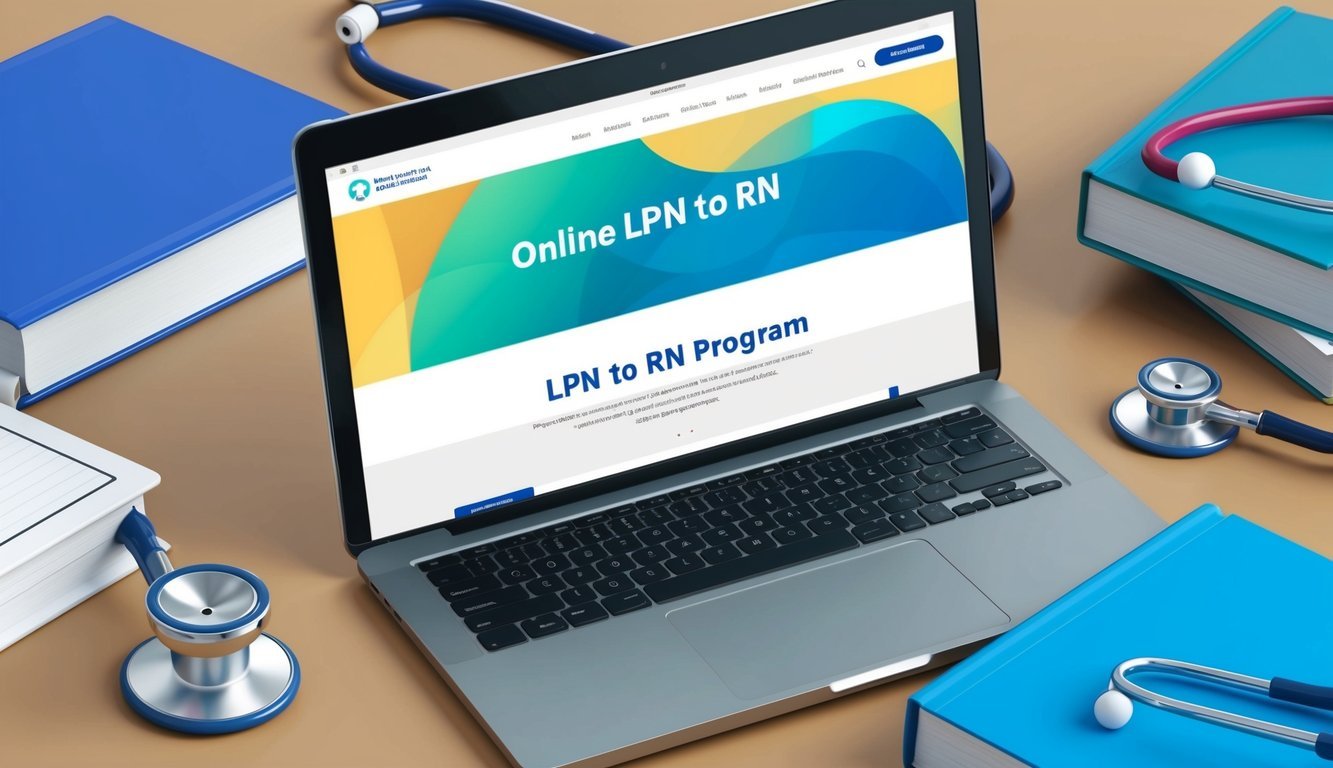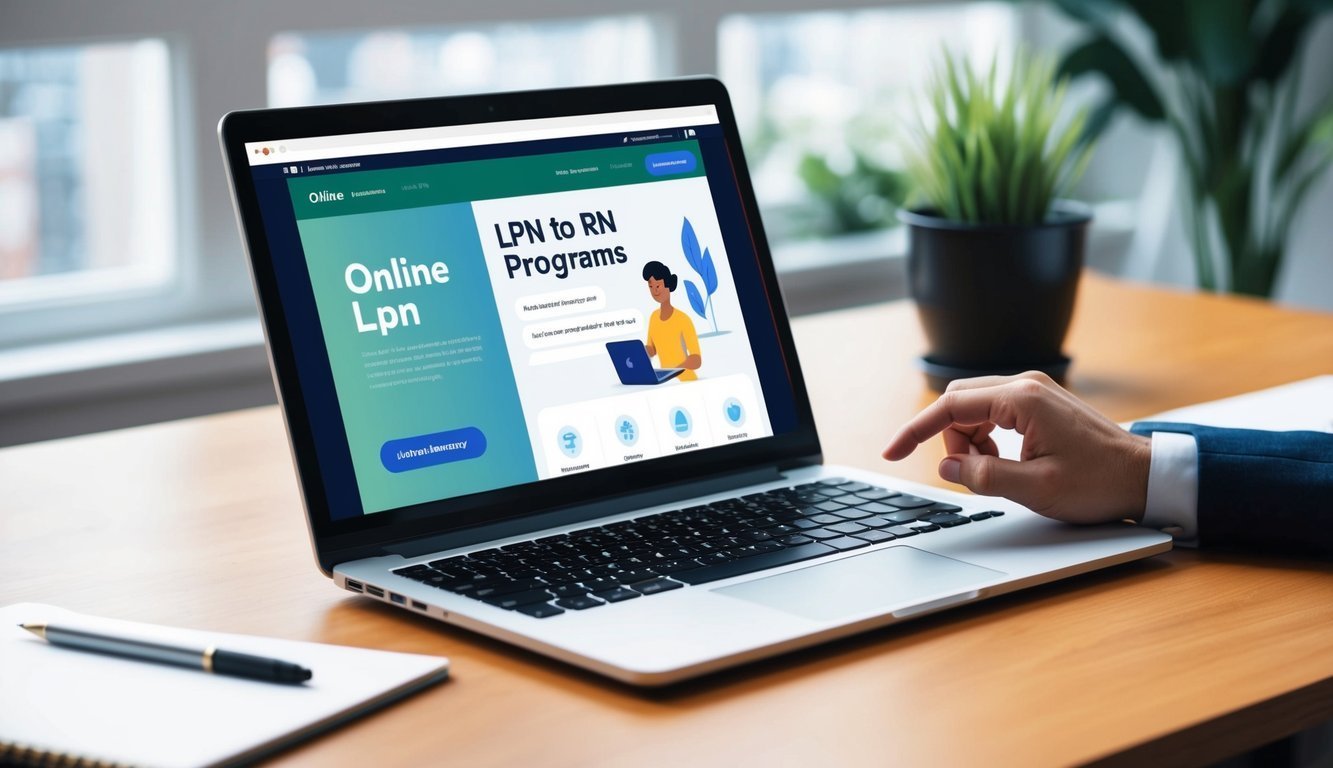Navigating the transition from a Licensed Practical Nurse (LPN) to a Registered Nurse (RN) can be challenging, especially when considering online programs.
Many LPN to RN programs include clinical requirements, but there are options available that allow you to complete your education without traditional clinical placements.
These online programs cater to those who may prefer to learn at their own pace or have commitments that make in-person clinicals difficult.
In these programs, you can build upon your existing nursing knowledge and skills through a curriculum focused on advanced nursing concepts.
You will still gain critical insights necessary for your career advancement while completing coursework remotely.
This flexibility is particularly beneficial for busy professionals who aim to elevate their nursing qualifications without the constraints of clinical hours.
Additionally, many accredited programs offer alternative arrangements for fulfilling clinical requirements.
Some programs allow for local clinical experiences, enabling you to gain hands-on training in familiar settings.
Exploring LPN to RN online programs designed without traditional clinicals can be the right step for your professional advancement.
Exploring LPN to RN Online Programs

LPN to RN online programs offer a flexible pathway for licensed practical nurses seeking to advance their careers.
These programs typically integrate coursework to help you transition effectively into a registered nursing role, often without the need for traditional clinical components.
Understanding LPN to RN Bridge Programs
LPN to RN bridge programs are designed specifically for licensed practical nurses who aim to enhance their skills and earn a registered nursing degree.
These programs often build on the foundational knowledge gained during LPN training.
Generally, they address advanced topics such as patient care, pharmacology, and health assessments.
Most bridge programs are structured to accommodate working professionals.
This means you can often schedule your classes around your existing commitments.
Some programs may even offer hybrid options, which combine online learning with limited in-person sessions for practical training.
Benefits of Online Learning in Nursing Education
Online learning provides significant advantages for those pursuing nursing education.
Flexibility is a primary benefit, as you can study at your own pace and manage your schedule to fit your life.
Many online LPN to RN programs also use interactive and multimedia tools that enhance the learning experience.
You can access lectures, discussions, and resources from anywhere with an internet connection.
This accessibility can make it easier to balance studies with work and personal responsibilities.
Online platforms often encourage collaboration through discussion boards and group projects, fostering a sense of community among students.
Program Length and Structure
The length of LPN to RN online programs can vary widely, usually ranging from 12 months to 24 months, depending on the structure and intensity.
Programs that require clinical hours may extend longer.
When examining program structure, consider the following aspects:
| Component | Description |
|---|---|
| Coursework | Core nursing subjects and specialized topics. |
| Duration | Typically 12 to 24 months, dependent on the program. |
| Clinical Hours | May vary; some programs offer alternative simulations. |
| Delivery Method | Primarily online, with possible hybrid or in-person options. |
Understanding these components is crucial for selecting a program that fits your goals and lifestyle.
Ensure you review each program’s specifics to align with your professional aspirations.
Accreditation and Educational Standards

Ensuring that an LPN to RN online program meets specific accreditation standards is crucial for your educational journey.
Accreditation affects the quality of education you receive and can influence your eligibility for licensure and employment opportunities.
The Importance of ACEN Accreditation
The Accreditation Commission for Education in Nursing (ACEN) is a key body that assesses nursing programs.
Programs accredited by ACEN demonstrate a commitment to maintaining educational standards and providing quality training.
Benefits of ACEN Accreditation:
- Quality Assurance: Accreditation ensures that the program meets or exceeds national educational standards.
- Transferability of Credits: Accredited programs often allow for easier transfer of credits between institutions.
- Eligibility for Financial Aid: Many financial aid programs require enrollment in an accredited institution.
To explore accredited programs, visit ACEN’s official website for a comprehensive list of recognized programs.
Higher Learning Commission and Program Accreditation
The Higher Learning Commission (HLC) also plays a significant role in accrediting postsecondary institutions.
HLC accreditation is essential for nursing programs as it signifies adherence to rigorous academic standards.
Key Points Regarding HLC Accreditation:
- Institutional Integrity: HLC ensures that institutions maintain transparency and integrity in their operations.
- Resource Availability: Accredited institutions typically provide robust resources, including experienced faculty and modern facilities.
Before enrolling, verify whether your program is accredited by HLC to ensure it meets high educational standards.
For more information, check the Higher Learning Commission website.
Admission and Academic Requirements

When considering LPN to RN online programs without clinicals, specific admission and academic requirements are crucial for your success.
Understanding these criteria will help you prepare effectively for your transition into registered nursing.
Admission Criteria for LPN to RN Programs
To enroll in LPN to RN programs, institutions typically have specific admission criteria.
Common requirements include:
- Valid LPN License: You must possess a current and active LPN license.
- Minimum GPA: Many schools require a minimum cumulative GPA of 2.0 or higher.
- TEAS Exam: A satisfactory score on the Test of Essential Academic Skills (TEAS) is often necessary. Each program sets its own benchmark score.
- Transcripts: Submission of high school and LPN transcripts is essential for evaluation.
These admission criteria ensure that you have a solid foundation for advanced nursing education.
Check specific programs for variations in requirements.
Core Nursing Curriculum and Academic Prerequisites
The core curriculum for LPN to RN programs focuses on essential nursing concepts and may involve the following areas:
- Nursing Theory: Covers fundamental nursing practices and methodologies.
- Pharmacology: Understanding medication administration and patient safety.
- Clinical Application: Some programs may include simulated clinical experiences, despite being primarily online.
While programs differ, common academic prerequisites might include:
- Biology: Coursework in biology, anatomy, or physiology.
- Mathematics: Basic math skills, potentially including statistics, are essential.
These academic components prepare you for the rigorous nature of nursing education.
For detailed program specifics, it’s beneficial to consult individual program offerings, such as those available at Nurse.org and similar educational resources.
Achieving RN Licensure

To become a Registered Nurse (RN), you must successfully navigate the process of licensure after completing your education.
This involves preparing for the NCLEX-RN exam and securing your RN license, which opens doors for career advancement in nursing.
Preparation for the NCLEX-RN Exam
Successfully passing the NCLEX-RN exam is crucial for obtaining your RN license.
This exam tests your knowledge and skills related to nursing practice.
Key Steps:
- Study Resources: Utilize online courses, review books, and practice tests tailored for the NCLEX-RN.
- Study Groups: Join study groups to share knowledge and strategies with peers.
- Practice Questions: Regularly practice with NCLEX-style questions to familiarize yourself with the exam format.
Consider setting a study schedule to cover all test subjects, including pharmacology, patient care, and health promotion.
Resources such as NCSBN provide valuable information.
Securing an RN License and Career Advancement
Once you pass the NCLEX-RN, the next step is obtaining your RN license.
Each state has its own application process, but generally, you will need to provide proof of your education and exam results.
Application Process:
- Complete Application: Submit an application through your state’s nursing board.
- Background Checks: Be prepared for background checks as part of the licensure process.
- Fees: Pay any associated application fees.
After securing your RN license, opportunities for career advancement become available.
RNs can specialize in fields like pediatrics, emergency care, or gerontology, often leading to higher salaries.
According to the Bureau of Labor Statistics, RNs earn a median salary of about $86,000 annually, compared to LPNs.
Taking these steps will position you for a successful nursing career and improved job prospects.
Transitioning from LPN to RN: Career Outlook
As you consider transitioning from an LPN to an RN, understanding the advantages of higher degrees in nursing and how they impact your career prospects is vital.
The right credentials can significantly influence your job opportunities and earning potential in the nursing field.
Advantages of Higher Degrees in Nursing
Earning a higher degree, such as a Bachelor of Science in Nursing (BSN) or Associate Degree in Nursing (ADN), offers a pathway to expanded roles in healthcare.
A BSN often provides deeper training in areas like leadership, critical thinking, and patient care management.
Key benefits of advancing your nursing degree include:
- Enhanced Skills: Higher education develops advanced clinical skills, making you more competitive.
- Expanded Role Opportunities: Many hospitals prefer or require a BSN for leadership and specialized roles.
- Greater Job Stability: The healthcare industry increasingly values higher education, equating it with better patient outcomes.
The Impact of an RN Degree on Salary and Opportunities
Transitioning to an RN can substantially affect your salary and job prospects.
Statistics show that RNs typically earn a higher salary than LPNs.
| Position | Average Salary |
|---|---|
| LPN | $59,000 |
| RN | $86,000 |
This difference is significant when considering long-term financial stability.
Moreover, RNs often have access to additional benefits and opportunities for advancement.
RNs can transition into specialized fields, pursue advanced degrees, and even take on roles in education or management.
Investing in your education by pursuing a BSN can open doors to leadership roles and increase your earning potential.
For further guidance on your educational options, consider exploring programs listed on Nurse.org.

